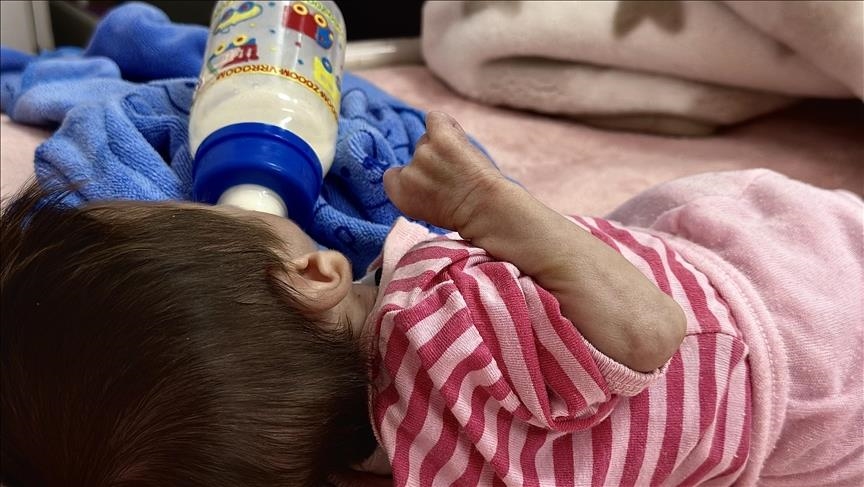WHO says 57 children died from effects of malnutrition in Gaza since March 2
'The risk of famine in Gaza is increasing with the deliberate withholding of humanitarian aid, including food,' says spokesperson

GENEVA
At least 57 children in Gaza have died from the effects of malnutrition since the start of the aid blockade on March 2, the World Health Organization (WHO) said Tuesday, citing the Palestinian Health Ministry.
Speaking at a UN press briefing in Geneva, Richard Peeperkorn, WHO representative for the West Bank and Gaza, described the situation as "one of the world's worst hunger crises," driven by the "deliberate obstruction" of humanitarian aid, including food and medical supplies.
The latest analysis by the Integrated Food Security Phase Classification (IPC) showed the entire population of Gaza -- some 2.1 million people -- is at "critical risk of famine," after 19 months of war, displacement, and aid restrictions.
From April 1 to May 10, 93% of the population, 1.95 million Gazans, was classified in IPC Phase 3 or above, meaning "crisis or worse." This includes 244,000 people in Phase 5 (catastrophe), and 925,000 in Phase 4 (emergency).
"If the situation persists, nearly 71,000 children under the age of five are expected to be acutely malnourished over the next eleven months," Peeperkorn said, adding that nearly 17,000 pregnant and breastfeeding women are also at risk.
He stressed that people in Gaza are trapped in a "dangerous cycle" where malnutrition weakens immune systems, diseases spread rapidly due to lack of clean water and sanitation, and access to health care is virtually nonexistent. Vaccine coverage has plummeted, and child protection risks are rising.
"Without enough nutritious food, clean water, and access to health care, an entire generation will be permanently affected," he warned, citing stunted growth, impaired brain development, and chronic health issues.
The representative said it is struggling to maintain support for 19 malnutrition treatment centers due to dwindling supplies. Current stocks inside Gaza can treat just 500 children -- "a fraction of the urgent need."
Peeperkorn reiterated calls for an immediate end to the aid blockade, the protection of health care, the release of all hostages, and a ceasefire leading to lasting peace.
- 'Children suffering from pneumonia, gastroenteritis'
Responding to a question from Anadolu on whether starvation can become the main cause of death if borders remain closed, Peeperkorn referred to the IPC report again, and said: "If this situation persists, half a million people are at risk of starvation. One million people will be severely affected over the coming four or five months, and another half a million will be moderately affected."
He noted that starvation is not typically the direct cause of death in such crises. "You normally don't die from starvation. You die from the diseases associated with that," he said, describing scenes of children suffering from pneumonia and gastroenteritis in overcrowded hospitals, worsened by hunger and lack of clean water.
Calling for an immediate end to the blockade, he stressed that "diverse food supplies should get in," alongside the restoration of basic infrastructure, including bakeries, desalination plants, and medical facilities.
"There’s a system in place to bring that around Gaza. So that should happen," he said.
He also noted that no WHO trucks have crossed into Gaza since March 18, and 31 WHO trucks are at Al-Arish, but supplies cannot be moved into Gaza due to the ongoing blockade.
Regarding the medical evacuations out of Gaza, he said they remain "extremely limited and challenging." Since the resumption of hostilities on March 18, only three medical evacuations have taken place, allowing 123 patients and 187 attendants to be evacuated for treatment abroad.
Over 52,900 Palestinians have been killed in Gaza in a brutal Israeli onslaught since October 2023, most of them women and children.








